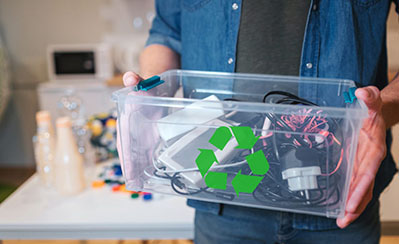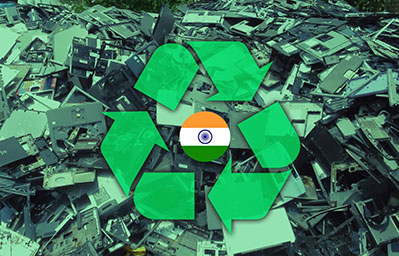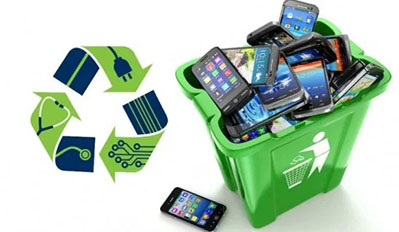

.jpg)
It was found that only 23% of the workers know the meaning of E-waste.Only 28% of them were aware of the harmful effects of e-waste. Seventy-two percent of the workers did not even know that this occupation was not safe and might harm them. Know more

Recycling of E-waste.As, when i saw the effects of E-waste on environment,human and animal life, i personally feel to spread awareness before it is too late. Know more

We should aware about the different methods involved in safe disposal of E-waste. Be a responsible citizen and save our precious environment. For more visit me i'll tell you more related to E-waste disposal. Know more

Reduction of volume E-waste can be controlled to large extent as, By reducing both the quantity of hazardous materials used in the process and the amount of excess raw materials in stock, the quantity of waste generated can be reduced. Know more
Welcome to our E-Waste Awareness section, where we aim to educate and raise awareness about the importance of responsible e-waste management. Electronic waste, or e-waste, is a growing concern due to its adverse impact on the environment and human health. When improperly disposed of, e-waste releases hazardous substances such as lead, mercury, and cadmium into the environment, contaminating our air, soil, and water sources. This pollution poses significant risks to ecosystems, wildlife, and human populations. By promoting proper e-waste disposal and recycling, we can mitigate these risks and contribute to a cleaner and healthier planet. Through informative articles, tips, and resources, we will explore the environmental consequences of e-waste, the benefits of recycling, and practical steps individuals and businesses can take to reduce their e-waste footprint. Together, we can make a positive impact by raising awareness and fostering a culture of responsible e-waste management. Join us on this journey to protect our environment and build a sustainable future.
Our recycling process for e-waste is designed to ensure the responsible and efficient handling of electronic devices. Once the e-waste is collected, we carefully dismantle each item, separating different components and materials. This allows us to sort and identify recyclable materials such as metals, plastics, and glass. Our trained technicians use specialized equipment to process these materials and extract valuable resources. Metals like copper, aluminum, and gold are extracted for reuse, reducing the need for new mining and minimizing the environmental impact. Plastics are also recycled, helping to conserve energy and reduce the demand for new plastic production. Additionally, hazardous substances such as lead and mercury are safely disposed of according to environmental regulations. Our recycling process follows strict industry standards and ensures the protection of personal data through secure data destruction methods. By recycling e-waste, we contribute to the circular economy, conserving resources, reducing landfill waste, and promoting a sustainable future for generations to come.